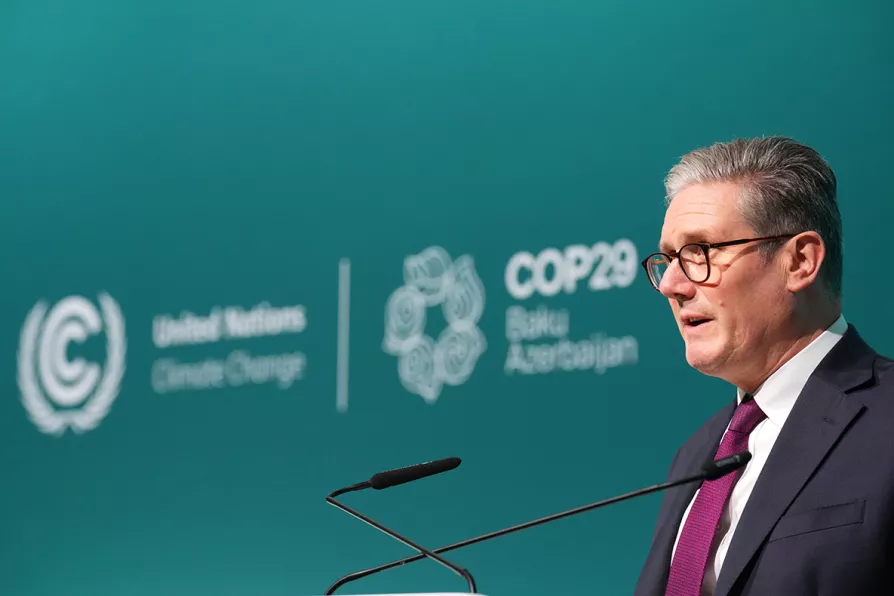Once the bustling heart of Christian pilgrimage, Bethlehem now faces shuttered hotels, empty streets and a shrinking Christian community, while Israel’s assault on Gaza and the tightening grip of occupation destroy hopes of peace at the birthplace of Christ, writes Father GEOFF BOTTOMS
Is it a Fair Cop?
The cynical lack of clarity over Cop29’s financial arrangements suggests that the bill will be footed by poor countries, writes TOM HARDY

 Prime Minister Keir Starmer speaking on day two of the Cop29 climate summit in Baku, Azerbaijan
Prime Minister Keir Starmer speaking on day two of the Cop29 climate summit in Baku, Azerbaijan
RISING sea levels, storms and droughts are not only destroying lives and ecosystems but are also pushing lower-income countries deeper into debt.
Cop29 was expected to address this injustice by urging wealthy nations, the main drivers of the climate crisis, to fund the damages they’ve caused.
The talks aimed to secure at least $1 trillion annually in grants for lower-income countries to manage climate disasters.
Similar stories














